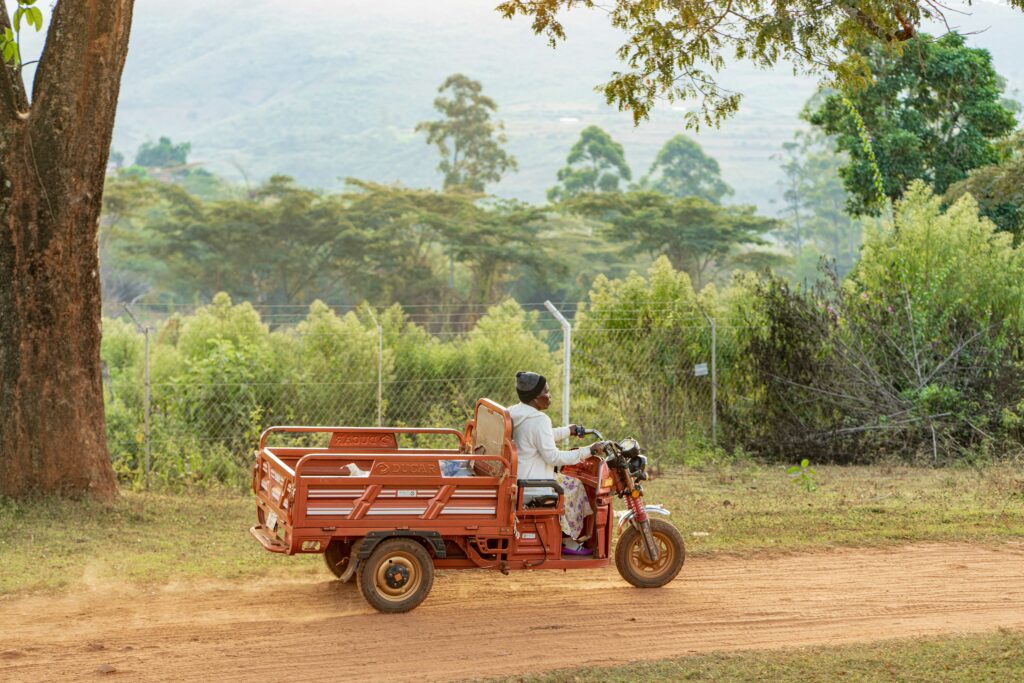Cultural barriers can stop women in rural Zimbabwe from learning to drive – Mobility for Africa works to change attitudes and also offers a five-day driver training course to get Hamba users up to speed.
The Hambas are leased to groups of farmers in Chipinge for an affordable 30 USD each a month. Mobility for Africa also partners with NGOs and government bodies to supply the vehicles. As well as taking farm produce to market, some drivers use their Hamba to offer a taxi service to their neighbours – and they are also used by rural healthcare workers. Mobility for Africa also creates transport and logistics fleets for organisations in the agribusiness sector.
Drivers make the most of their vehicles

Betty’s neighbour Pauline Ndlovu is also a dairy farmer. Before getting access to a Hamba, she had to carry 20 litres of milk 7km to the nearest milk collection centre, making the trip twice a day. Betty was sometimes too tired or lacking in time to carry out this journey. She estimates the vehicle has raised her income by up to 120USD a month.
Another neighbour, Grace Mhlaba, boosts her dairy farming income with work as a nurse aid in a local clinic. The ways she uses her Hamba include taking patients to the health centre and offering a taxi service to fellow healthcare workers, taking them to and from work for a small fee. It has also spared her daughters from having to go out to search for firewood and water – something that used to take up to four hours a day.
